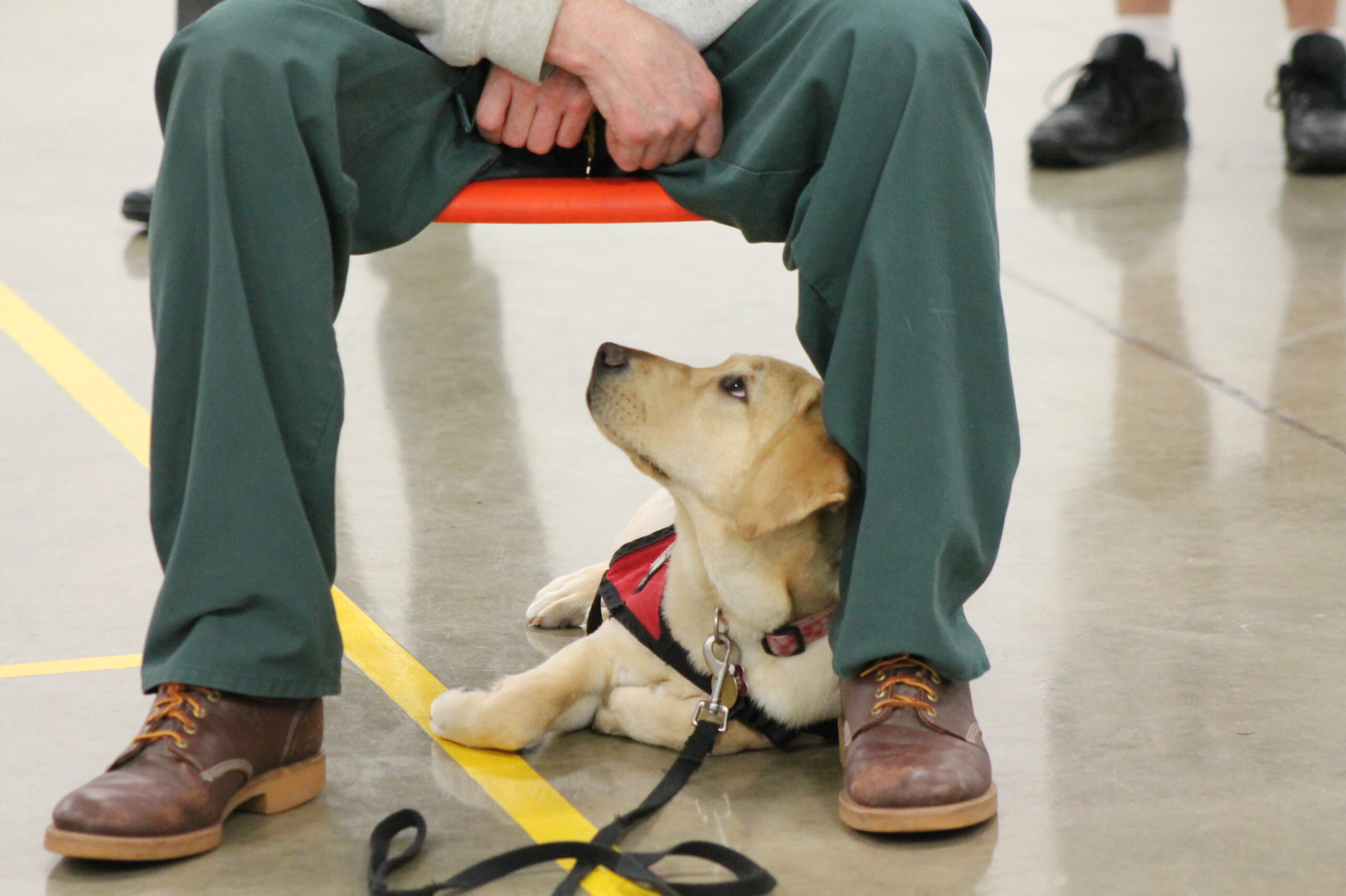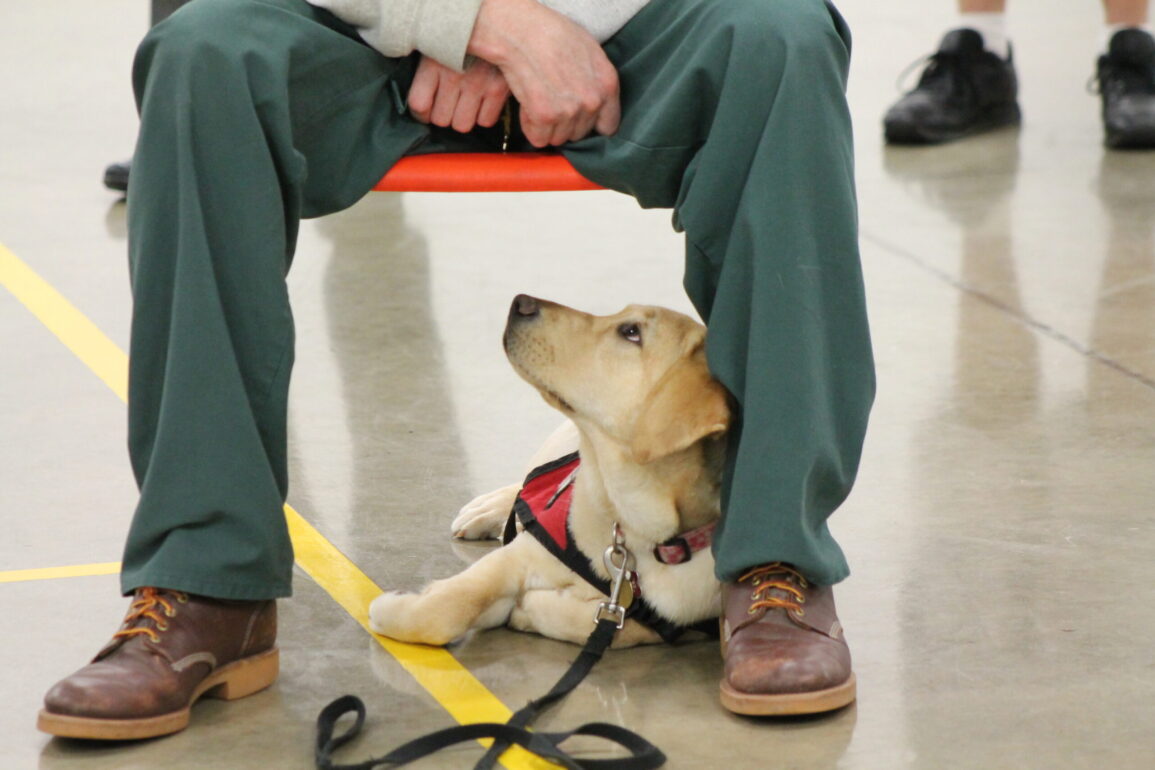
A Republican-authored bill hopes to crack down on Wisconsinites who misrepresent their pets as service animals.
The legislation would prohibit a person from “intentionally misrepresenting that he or she is in possession of a service animal” in public places, according to an analysis by the Legislative Reference Bureau. Those who do could be fined $200 for a first violation and $500 for subsequent offenses.
The bill would also change the state’s definition of a service animal to align with federal law. Wisconsin currently allows any animal that is trained to perform tasks for an individual with a disability to be considered a service animal, while the federal definition is limited to dogs and miniature horses.
Stay connected to Wisconsin news — your way
Get trustworthy reporting and unique local stories from WPR delivered directly to your inbox.
The legislation was authored by Sen. Rachael Cabral-Guevara, R-Appleton, and Rep. Paul Tittl, R-Manitowoc. In a message looking for cosponsors, the lawmakers said the proposal “strikes a balance between the rights of individuals with legitimate needs and the rights of property and business owners to maintain reasonable control.”
People misrepresenting pets as service animals has been a problem for years, said Aaron Backer, executive director of WAGS, a Madison-based organization that trains service dogs for people with disabilities.
“It’s hurting the reputation of legitimate service dog organizations because the business owners see a dog walk in with someone and go, ‘Oh, here we go again,’” Backer said.
Federal law only allows businesses to ask if a dog is required because of a disability and what tasks the animal is trained to perform, which Backer said can make it hard to determine if a service animal is legitimate. He said that’s especially true given how easy it is for pet owners to buy a vest or other gear online to make a dog appear legitimate.
“I get calls quite frequently from businesses that are kind of at their wits end trying to figure out, ‘how do I know it’s a legitimate service animal? And what do I do to find out that information?’” he said.
The legislation would require the state Department of Workforce Development to create an informational brochure to help businesses understand their rights related to service animals. It also would direct the agency to create new signage for businesses’ doors and windows that specify that “task-trained service animals are welcome,” a clarification that Backer supports.
Susan Quam, executive vice president of the Wisconsin Restaurant Association, said restaurants are often afraid to confront someone about a poorly behaved service animal, both out of the fear of targeting someone with an actual disability and for fear of costly legal action.
“We have seen cases where complaints have been made where someone truly doesn’t have a service animal, it truly is their pet — but they still made a complaint and required small businesses to hire lawyers to defend themselves,” she said.
Quam said people misrepresenting service animals at restaurants has become a bigger problem since the COVID-19 pandemic, when she said many people got attached to their dogs. But she said it can create serious problems for restaurants if the animal becomes aggressive, or if it urinates or defecates inside.
“We do want to make sure that the individuals who have service dogs are able to access the facilities that they want to access, and they are welcomed into our establishments,” she said. “And what we really want to do is just put a little teeth in it, so that folks really do understand that it is a problem when they misrepresent themselves.”
The bill also creates slightly stricter requirements for renters and buyers who have emotional support animals, which provide comfort and companionship instead of performing tasks. These animals are considered an accommodation for people with a disability, making them not subject to pet restrictions or fees in housing.
Current law allows landlords and condominium associations to ask for “reliable documentation” providing an individual’s need for an emotional support animal. The new legislation would take the restriction further by allowing landlords to require a prescription for the animal from a licensed medical professional. The bill creates a $500 penalty for individuals who falsify a prescription and health care providers who write a prescription without having at least a 30-day relationship with the patient.
Wisconsin Public Radio, © Copyright 2025, Board of Regents of the University of Wisconsin System and Wisconsin Educational Communications Board.
This post was originally published on this site be sure to check out more of their content.
















































